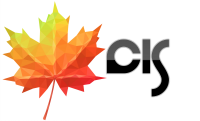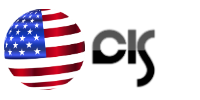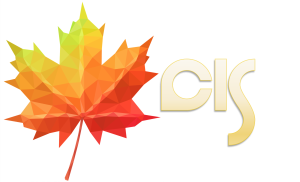How to Prepare for a Job Interview in Canada
Home » Blog » Work in Canada » How to Prepare for a Job Interview in Canada
Being hired by a Canadian employer will provide you with a higher chance of working in Canada! However, if you plan to immigrate for work, it’s best to be prepared before any interview, and we’re here to help!
In this short guide, you’ll be provided with only the best tips on how to find and apply for jobs in Canada. 👔
Table of Contents
💼 Why Is It Important to Prepare for a Job Interview?
A job interview gives you and your Canadian employer a chance to determine how well your talents and needs match what the company is searching for in a new employee. They may also use it to figure out whether you’re good enough to immigrate to Canada.
Interviews with potential colleagues let you get to know them better and provide you with more information to assist you in determining whether that position is suitable for you.
Learn more: Check this article for the top 10 Canada jobs for foreigners
✅ 12 Essential Tips and Techniques in Preparing for a Job Interview in Canada (Click to Read)
Take a look at the job description and pay close attention to the first questions that were asked during the scheduling of the interviews.
Check to see whether their fundamental ideals are compatible with yours, such as:
- What exactly is the company’s mission?
- What are their goals and vision?
- What are the products and services?
- Examining the company’s social media profiles and online community evaluations
Do your research on the surroundings and what to expect when your Canadian employer conducts an interview. Always be prepared for the situation in which your interviewer puts you in!
Try to prepare proper answers to questions such as:
- Where do you see yourself in the next 2 to 3 years?
- Do you have any relocation plans?
- How will you handle your finances?
Whether you do a formal or casual interview, it is important to be yourself. Surprisingly, each interview is different. This is because there are no two interviewers exactly alike.
Regardless of how much preparation you do, you must change your topic and timing according to the interviewer. While the questions themselves may appear repetitive, it’s the interviewer’s persona that ultimately determines your first approach during the interview.
Your interviewer will provide information about the company you’re applying to from the start of the interview. You are missing a big chance if you do not hear it. Listening and acknowledging that you heard what was said are important skills in communication. In addition to this, you shouldn’t overshare or talk over the interviewer. It’s risky to overshare with the interviewer. Unprepared interviewees may ramble, perhaps excluding themselves from consideration.
Before your interview, review the job description, comparing your abilities to the criteria and focusing on that.
Canadian employers consider conversation starters to be one of the things they look for when they first meet a prospective applicant. They’re normally quiet to check whether the candidate feels comfortable enough to engage in casual conversation. This is also crucial in sales, communications, or any job where face-to-face meetings with customers are the norm, since the workday often includes interactions with clients about their goods and services.
It’s difficult to provide a response to this question. You may have quit your work due to many factors, but a great reason would be due to finding better job opportunities in a different country. It is best not to seem lethargic or uninspired in an interview, so be sure to word your explanations properly.
A great way to approach your response choice is to provide a brief response. Admit it, but in a manner that makes you seem good. Aim to explain why the position at hand is a great fit for your abilities, expertise, and experience, and avoid ranting about your past company.
Interviewers will typically start with the standard, “Tell me about yourself” and “What are your strengths/weaknesses” queries. While answering the questions, it is essential not to remember the answers but instead to have a good understanding of the major ideas you want to communicate, as well as to answer them in a very natural and conversational manner.
Most applicants don’t respond much when asked whether they have any questions. This is wrong. Being able to interview well requires asking questions to show a vested interest in what occurs inside the business. You may also learn whether this is the best location for you to be by asking questions. After an interview, the most important questions are the ones you ask based on the facts you learn.
It’s only appropriate that a thank you letter should be sent after every interview. Showing appreciation in this way also communicates that you are still excited about the job. Not sure how to create your very own thank you note, check out this template that you may use and recreate to your standards:
Dear (Name of interviewer),
I appreciate your willingness to discuss the (the position you applied for) job with me. Such an invigorating discussion on key performance metrics, weekly assignments, and corporate objectives was wonderful.
My expertise of the industry and understanding of the job were reinforced when you discussed the position’s requirements during our discussion. The time I spent at (name of company you applied for) has given me the skills I need to contribute to both the department and the team.
I’m eager to discuss this possibility in greater detail. If you require additional information regarding my work background, please don’t hesitate to get in touch with me.
Sincerely,
Francesca Howard
If you have a strong feeling about how the interview went, it’s reasonable to desire an update on the recruiting process. However, it is essential to note that there are some things to avoid when writing a follow-up email following the interview, such as choosing an aggressive, sloppy, or casual tone in your follow-up email will likely hurt your chances of getting the job.
❔ Common Types of Job Interview Questions (with Examples)
Behavioral questions are linked to your previous experiences, and employers attempt to anticipate your performance by looking at your prior performance.
Examples of Behavioral Interview Questions
- Tell me about yourself.
- Where do you see yourself 5 years from now?
- Describe the best job you’ve ever had.
- What are the characteristics of a good boss?
- Why should we hire you?
- How would a good friend describe you?
Communication skills questions evaluate a person’s ability to communicate in different situations, which is why communication styles are often asked during a job interview. These kinds of questions are crucial when interviewing job applicants for communications-related roles.
The questions used in communication skills interviews let interviewers assess the candidates’ language understanding, verbal and nonverbal communication skills, and ability to interact with various individuals in diverse scenarios.
Examples of Communication Skills Questions
- Do you work well with other people?
- How do you handle stress and pressure?
- How would you describe yourself?
- What major challenges and problems have you faced? How did you handle them?
- Describe a difficult work situation/project and how you overcame it.
- What have you learned from your mistakes?
Examples of Opinion or Point Of View Questions
- Where do you see our company in the next 5 years?
- If you were an animal, what type of animal would you be?
- Where do you see our industry headed over the next 10 years?
In every profession and at every level, performance-based questions are utilized. To clarify how you approach issues and problems, a Canadian employer may provide these questions for better insight. Interviewers may also utilize your previous work experiences to predict your future job success, so be prepared to share them during your interviews.
Examples of Performance-Based Questions
- When have you needed to convince people to make a change? What tasks did you carry out, and what part did you play? What happened?
- Tell me about a moment when you offered an innovative idea at work. What was your inspiration? How did you manage to persuade your managers to go along with it?
- Tell me about a goal you made for your career and how you succeeded in meeting it.
- Tell us about a time when you personally resolved a workplace issue by taking significant and direct action.
- What is your response when a customer has a query for you, and you do not have the answer immediately?
Questions about problem-solving allow interviewers to see the interviewee’s abilities, such as collecting facts, how they handle certain situations, and decision making. One example of these kinds of interview questions is to ask a candidate to describe a time when they had to evaluate a situation or solve an issue.
Example of Situational or Problem Solving Questions
- Do you have an excellent track record of success, and are you proactive in your work?
- Do you seek out other methods of contributions?
- Do you have the kind of dependability that helps teams excel?
- Do you need someone to give you orders, or are you someone who is self-motivated?
👨💼 What to expect in a Canadian workplace culture?
It’s important to understand that you’ll need to make some adjustments to your expectations about certain workplace ethics in Canada.
You may use the following recommendations as a means of adjusting in advance to your new working environment.
You should smile while greeting your coworkers and boss. Looking someone in the eye when you speak to them makes them feel like you’re accessible.
When conversing with someone, don’t interrupt them.
Always try to contribute to the team in a positive manner. Put forth effort to prove that you are worthy of working with the business.
Don’t be late. Canadians can’t emphasize this enough: The ability to manage time is crucial to successful work ethics, just as it is to every workplace in the globe. Be sure to go to work at least ten to fifteen minutes early.
If you are uncertain or cannot take on a challenging job, don’t respond with a “yes”.
Be sure to submit all assignments before the deadline.
If you are planning to take a vacation or have to miss a day, it is important to let your boss know in advance.
Never leave the workplace without an urgent reason.
To boost your career, ask your teammates and superiors for guidance on your performance.
You should always assist if you have some extra time.
Don’t become too reliant on your coworkers and boss; furthermore, you should be able to work alone.
You should attempt to offer information and advice to your colleagues.
In order to be respectful to your coworkers, ensure that your phone is not ringing during office hours.
During meetings or interviews, never answer your phone.
It’s crucial to communicate your cultural norms with people so they can comprehend.
Make your body language and tone of speech convey a pleasant vibe.
Don’t spread gossip or make assumptions about coworkers.
Don’t make inappropriate jokes at work, and make sure you are suitable at all times.
Be active outside of the office, when feasible, with activities and events that support the business.
Make sure to keep your work-related issues at the office and do not take them home.







